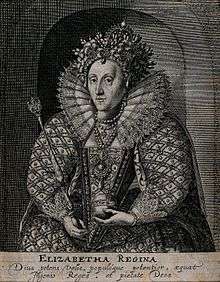Honorary male

An honorary male or honorary man is a woman who is accorded the status of a man without disrupting the patriarchal status quo. Such a woman might be considered “one of the guys” by the men she associates with.[2]
The honorary man, Carolyn Heilbrun writes in "Non-Autobiographies of 'Privileged' Women: England and America" (1988), must isolate herself from the common run of women to maintain her "privileged" status. In this way, she exchanges one form of confinement (the domestic sphere) for another (the male realm).[3]
Prior to 1900's
In "Queen Elizabeth I and the Persistence of Patriarchy", Allison Heisch describes honorary males as women who accept the values and practices of the male society in which they function, and internalize and follow them. She notes that honorary males tend to support rather than subvert patriarchal governance, and cites as an example Queen Elizabeth I, whose reign had little to no impact on the status of women in England. She also cites the example of Gertrude Stein sitting in her salon, smoking cigars and conversing with the men. Stein's participation temporarily modifies the after-dinner ritual in which men smoke cigars and talk amongst themselves, but does not permanently alter it.[1] An exception is made for her because she is seen as different from other women; Ernest Hemingway once wrote in a letter, "Gertrude Stein and me are just like brothers".[4]
1900's to present
Comparing male domination of the political sphere in Zambia to that in the United States in 1998, Sara Hlupekile Longwe writes that honorary males are often also queen bees who have been "schooled to believe that women already have equality—because they themselves have reached the top"; she calls this the Thatcher syndrome. Such women, she claims, do not wish to empower other women, but rather to preserve their own exceptional status among the men.[5]
Margaret Atwood described the results of a study of book reviews conducted in 1972:
We also found that, if a man's book was being praised, it tended to attract excess-of-malehood adjectives; the writer was an ultra-man. If dispraised, the poor guy would be allotted adjectives from the Quiller-Couch "female" slate. If female and unsatisfactory, a woman writer would be more female than female; if admired, she would "transcend her sex" (that's a quote) and would be raised to the status of non-woman, or honorary man. "She thinks like a man" was a compliment.[6]
Ursula K. Le Guin once said in an interview, "I read the Norton Anthology of Literature by Women from cover to cover. It was a bible for me. It taught me that I didn't have to write like an honorary man anymore, that I could write like a woman and feel liberated in doing so."[7]
This phenomenon can be seen in academia. Barbara Bagihole, the Director of Studies for MA in Women's Studies at the University of Loughborough, England, conducted a study that revealed that the women she interviewed felt the need to disassociate themselves from their female colleagues in order to succeed in their male dominated field.[8]
Women in the military face a similar problem. Recent wars in Iraq and Afghanistan have allowed women combat roles. However, in order for women in the military to be accepted and considered successful, they feel they must become “one of the guys.” Otherwise they face sexual and gender based ridicule that, in some cases, led to women ending their military careers.[2] Feminist theorist Cynthia Enloe argues that the institution of the military is not comparable to those of education or business because of its inherent violent and hyper-masculine characteristics. She states that this environment is so harmful for women that they can never fully assimilate.[9]
The Double Bind
The double bind is essentially the double standard held against women candidates and political leaders. A woman's ability to overcome the double bind enables her to obtain the status of an honorary man. To overcome the double bind women candidates and political leaders must enhance their masculine qualities and reduce their feminine qualities in order to be perceived as capable for the job. Women must not appear too masculine to the point where they seem "bitchy" nor too feminine to the point where they seem "weak." Dolan, Deckman, and Swers discuss in their book Women and Politics that a woman candidate must successfully overcome the double bind to participate in the masculine political realm.[10]
References
- 1 2 Heisch, Allison (1980). "Queen Elizabeth I and the Persistence of Patriarchy". Feminist Review. 4: 45–56.
- 1 2 King, Anthony. "The female combat soldier.". European Journal of International Relations. 22 (1). doi:10.1177/1354066115581909.
- ↑ Parati, Graziella (1996). Public History, Private Stories: Italian Women's Autobiography. U of Minnesota Press. p. 161. ISBN 9780816626069.
- ↑ Hemingway, Ernest (2003). Baker, Carlos, ed. Ernest Hemingway Selected Letters 1917-1961. Simon and Schuster. p. 62. ISBN 9780743246897.
- ↑ Longwe, Sara Hlupekile (1998). "Education for women's empowerment or schooling for women's subordination?". In Sweetman, Caroline. Gender, Education, and Training. Oxfam. p. 24. ISBN 9780855984007.
- ↑ Atwood, Margaret (1994). "Not Just a Pretty Face". The Women's Review of Books. 11 (4): 6–7. JSTOR 4021722.
- ↑ Freedman, Carl Howard (2008). Conversations with Ursula K. Le Guin. Univ. Press of Mississippi. p. 100. ISBN 9781604730944.
- ↑ Bagilhole, Barbara. "Survivors in a male preserve: A study of British women academics' experiences and perceptions of discrimination in a UK university". Higher Education. 26 (4): 431–447. doi:10.1007/BF01383737. ISSN 0018-1560.
- ↑ Duncanson, Claire; Woodward, Rachel. "Regendering the military: Theorizing women's military participation". Security Dialogue. 47 (1). doi:10.1177/0967010615614137.
- ↑ Dolan, Julie, et al. Women And Politics. Traci Crowell, Molly White. 3rd Edition. Rowman & Littlefield. 2016. p. 112.